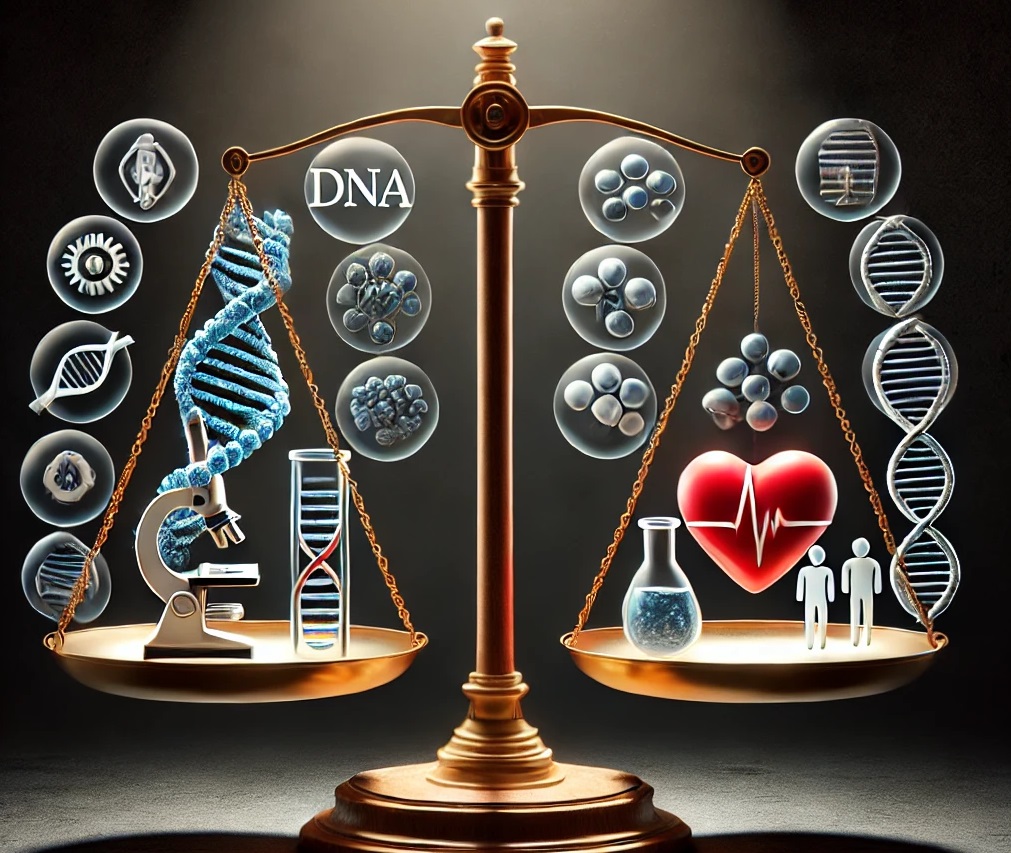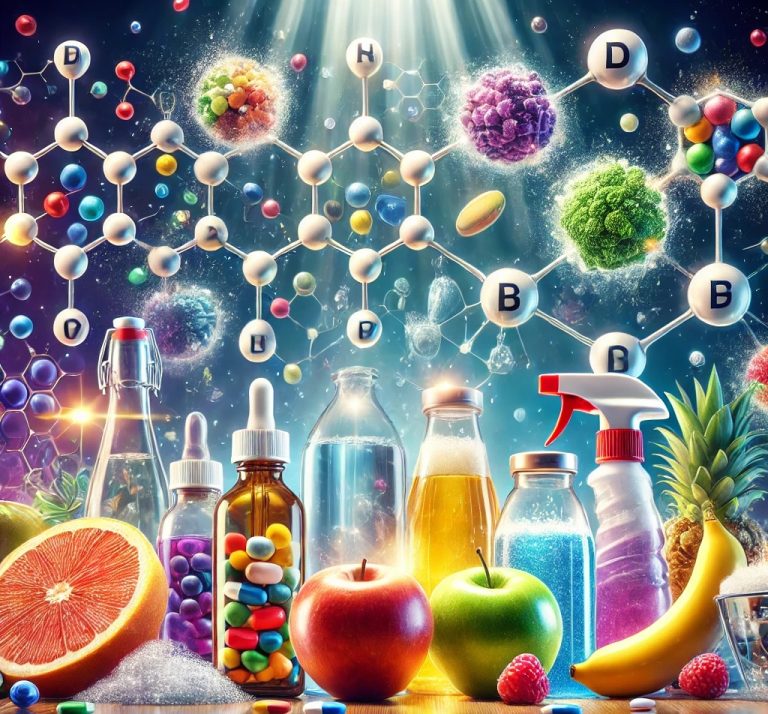
Ethical Issues in Biotechnology and Genetic Engineering
The rapid advancement of biotechnology and genetic engineering has opened new frontiers in medicine, agriculture, and environmental science. From genetically modified organisms (GMOs) to cloning, stem cell research, and synthetic biology, these fields offer incredible potential to improve human health, enhance food security, and even tackle climate change. However, with these possibilities come numerous ethical issues that society must address to ensure responsible and fair use of these powerful technologies. This essay explores the primary ethical issues in biotechnology and genetic engineering, including questions of human and animal rights, environmental impact, social justice, and the preservation of genetic diversity.
1. Human Rights and Genetic Engineering
Human genetic engineering and gene editing have the potential to treat or prevent many genetic diseases. However, the use of technologies like CRISPR-Cas9 to edit human DNA raises significant ethical concerns.
a) Germline Editing and Designer Babies
One of the major ethical issues with genetic engineering in humans is germline editing, which involves modifying the DNA of embryos, eggs, or sperm in ways that can be inherited by future generations. While germline editing could potentially eliminate genetic disorders, it also opens the door to designer babies, where parents might choose traits such as intelligence, physical appearance, or athletic ability for their children. Critics argue that this practice could lead to a society divided by genetically enhanced and non-enhanced individuals, increasing social inequality and potentially leading to genetic discrimination.
b) Consent and Human Dignity
Another ethical concern is that embryos cannot consent to genetic modifications. Altering the human germline affects not only the individual but also future generations who did not consent to these changes. This issue raises questions about human dignity, as it places future individuals into a predetermined genetic framework, potentially limiting their autonomy and altering the nature of human diversity.
2. Animal Rights in Genetic Engineering
Biotechnology has advanced the development of transgenic animals for research, agriculture, and pharmaceutical production. These animals are genetically engineered to possess specific traits, such as disease resistance or increased productivity. However, there are ethical concerns about the welfare and treatment of these animals.
a) Animal Welfare
One major issue is that the process of genetic modification can lead to unintended suffering for animals. Transgenic animals often experience health problems, physical abnormalities, or behavioral changes due to their altered genetics. For example, animals modified for accelerated growth may suffer from physical deformities, while others engineered to be disease models may endure prolonged suffering for scientific purposes. Many ethicists argue that subjecting animals to genetic engineering for human benefit disregards their well-being and reduces them to mere tools for human use.
b) Animal Cloning and Natural Integrity
Cloning of animals, especially in agriculture, also raises ethical issues. Cloned animals often suffer from health problems and shortened lifespans. Critics argue that cloning and genetic modification disregard the natural integrity and autonomy of animals, manipulating them in ways that might violate their intrinsic value. The question arises of whether it is ethically acceptable to manipulate animals’ genetics simply to benefit human needs, be it for research, food, or pharmaceuticals.
3. Environmental Impact of Genetically Modified Organisms
The release of GMOs into the environment, whether in the form of genetically modified crops, animals, or microorganisms, presents several ethical and environmental concerns. While biotechnology offers solutions to food security and environmental challenges, the unintended consequences can be far-reaching.
a) Biodiversity Loss and Ecological Balance
One of the primary environmental concerns is that GMOs could disrupt biodiversity. For example, genetically modified crops with pest-resistant traits may unintentionally harm non-target organisms, such as pollinators or beneficial insects. Additionally, there is a risk that genetically modified plants or animals could escape into the wild and outcompete native species, leading to a reduction in biodiversity and upsetting ecological balance. The loss of biodiversity poses a significant ethical issue, as it disrupts ecosystems and affects the livelihoods of communities that rely on diverse agricultural practices.
b) Contamination of Natural Species
Another ethical issue is the potential contamination of natural species through gene flow, which occurs when genetically modified organisms crossbreed with wild relatives. This could lead to the unintended spread of modified genes in natural populations, which could be irreversible and lead to unforeseen environmental impacts. Gene flow raises questions about the integrity of natural species and whether it is ethical to alter genetic diversity in the environment.
4. Social and Economic Justice
Biotechnology and genetic engineering have the potential to address many global challenges, such as hunger, disease, and environmental degradation. However, the benefits and risks of these technologies are often distributed unevenly, raising issues of social and economic justice.
a) Access to Biotechnology and the Wealth Gap
One of the most significant ethical concerns is that biotechnology is often developed and controlled by wealthy nations and large corporations. This can result in a wealth gap where only affluent individuals or countries can afford the benefits of genetic engineering, such as gene therapies or advanced agricultural biotechnology. For instance, costly gene-editing treatments for rare diseases may be available only to wealthy patients, leaving those in low-income communities without access. This disparity raises ethical questions about fairness and equality, as the benefits of biotechnology may not be equally accessible to all.
b) Corporate Control and Food Security
Many biotech companies have patented genetically modified seeds, giving them control over agricultural production. Farmers who use these seeds often cannot save or replant them without paying royalties, which can create dependency on corporations for seeds and inputs. This control can lead to monopolies, reduce farmers’ autonomy, and threaten traditional farming practices, especially in developing countries where small-scale farmers rely on diverse crops for sustenance. The corporate control of food production through genetic engineering thus raises ethical questions about food sovereignty, economic exploitation, and the rights of farmers.
5. Ethical Concerns in Synthetic Biology
Synthetic biology is an emerging field that combines engineering principles with biology to create new organisms or redesign existing ones. While synthetic biology holds great promise, such as in the production of biofuels or new pharmaceuticals, it also raises ethical questions about the limits of human intervention in nature.
a) Playing God and the Natural Order
One ethical concern is whether it is morally acceptable for humans to create or redesign life forms. Some people argue that synthetic biology involves “playing God” by creating organisms that have never existed in nature, which could disrupt the natural order. This concern reflects broader questions about the role of humanity in modifying life and the potential consequences of creating synthetic organisms that may behave unpredictably.
b) Dual-Use Dilemma and Biosecurity Risks
Synthetic biology also raises biosecurity concerns due to the potential for dual-use applications, where the same technologies could be used to create harmful pathogens or biological weapons. The accessibility of genetic engineering tools could allow malicious actors to create synthetic pathogens, posing risks to global health and security. The dual-use dilemma calls for strict oversight, responsible research practices, and international regulations to prevent misuse.
6. Genetic Engineering in Agriculture and Food Ethics
Biotechnology in agriculture aims to increase crop yields, reduce pesticide use, and enhance nutritional value, but it also faces ethical scrutiny from those concerned about the environmental and social impacts of genetically modified foods.
a) Food Safety and Public Health
One ethical concern is the potential health risks of consuming genetically modified foods. Although scientific studies generally indicate that GMOs are safe, some individuals worry about long-term health effects or the possibility of allergens in genetically engineered foods. This has led to calls for labeling genetically modified products to respect consumer rights and transparency.
b) Traditional Farming and Cultural Integrity
Genetic engineering in agriculture can disrupt traditional farming practices, especially in cultures where certain crops hold cultural significance. The spread of genetically modified seeds can displace indigenous crop varieties, threatening the cultural heritage and biodiversity of these communities. Ethically, this raises questions about the right to preserve traditional farming practices and the cultural autonomy of farming communities.
7. Regulation, Accountability, and Informed Consent
As biotechnology advances rapidly, there is a pressing need for regulatory frameworks that ensure ethical practices, transparency, and accountability. The lack of consistent regulations across countries has led to ethical concerns about the safety and monitoring of GMOs and genetic engineering research.
a) Regulatory Oversight and Public Involvement
Effective regulatory oversight is essential to ensure that biotechnology is used responsibly and ethically. However, regulatory bodies are often influenced by political or corporate interests, which may not always prioritize public safety or environmental protection. The ethical issue lies in the need for transparent, science-based regulations that consider public input, especially when the technologies affect society at large.
b) Informed Consent in Genetic Engineering Research
Informed consent is an ethical principle in research, requiring that participants fully understand the risks and benefits before agreeing to participate. In the case of genetic research, informed consent becomes complex, especially when it involves minors, embryos, or communities. For instance, when indigenous groups are studied for genetic traits, obtaining true informed consent and ensuring fair benefit-sharing is critical to respecting their rights and avoiding exploitation.
10 Questions and Answers that Provide Explanations on the Ethical Issues Associated with Biotechnology and Genetic Engineering.
1. What are the primary ethical concerns in genetic engineering?
Answer:
The main ethical concerns in genetic engineering involve the impact on human rights, animal welfare, environmental risks, and social justice. Issues like germline editing in humans raise questions about future generations’ autonomy and genetic diversity, while modifying animals may cause health problems and impact biodiversity. Environmental risks include the unintended spread of genetically modified organisms in nature, which could alter ecosystems. Social justice concerns relate to the potential for increased inequality, as these technologies may be accessible only to wealthy individuals or corporations.
2. Why is germline editing considered controversial?
Answer:
Germline editing is controversial because it involves making genetic changes that can be passed on to future generations. This raises ethical concerns about consent, as future generations cannot consent to genetic modifications that will affect them. Additionally, there is the potential for creating “designer babies,” where genetic traits could be selected for non-medical reasons, which could lead to a society divided by genetic enhancements and raise issues of fairness and inequality.
3. How does animal genetic modification raise ethical issues?
Answer:
Genetic modification in animals can cause health issues, as modified animals may suffer from physical deformities or experience pain due to their engineered traits. There are ethical questions around whether it is right to alter animals purely for human benefits, such as increased productivity in livestock or for research purposes. Some argue that it reduces animals to tools for human use, disregarding their welfare and natural integrity, especially when they are used as models for diseases or as bioreactors to produce pharmaceuticals.
4. What are the environmental concerns associated with genetically modified organisms (GMOs)?
Answer:
Environmental concerns include the risk of biodiversity loss and gene flow to wild populations. GMOs, such as pest-resistant plants, can unintentionally harm non-target organisms and disrupt local ecosystems. When genetically modified traits spread to wild relatives, it can alter genetic diversity and potentially make ecosystems less resilient. The long-term impacts of releasing GMOs into the environment are uncertain, which raises ethical questions about the responsible use of genetic technologies.
5. What are some social justice concerns related to biotechnology?
Answer:
Social justice concerns include access inequality and corporate control over biotechnology. Genetic engineering treatments or modified seeds can be costly, making them accessible primarily to wealthy individuals or corporations. This creates a gap between those who can benefit from these technologies and those who cannot, which may exacerbate social inequalities. Corporate control of genetically modified seeds can also lead to monopolies, impacting farmers’ rights and traditional farming practices, especially in developing countries.
6. What is the “playing God” argument in synthetic biology?
Answer:
The “playing God” argument suggests that creating or modifying life forms in synthetic biology oversteps ethical boundaries, as it involves humans exercising control over life in ways that were previously the domain of nature or evolution. Some believe this kind of intervention disrupts the natural order and could lead to unforeseen consequences. The ethical question is whether humans should have the right to create entirely new organisms or extensively modify existing ones for human benefit.
7. Why is informed consent important in genetic engineering research?
Answer:
Informed consent is essential because participants in genetic engineering research must understand the risks and benefits involved. This principle becomes more complex in genetic studies involving embryos or indigenous populations, as it affects individuals who may not directly consent (like future generations or communities). Informed consent ensures that individuals and groups retain their autonomy and are not exploited or exposed to unintended harm, making it a cornerstone of ethical research.
8. What ethical issues arise from corporate control over genetically modified crops?
Answer:
Corporate control over genetically modified crops can lead to monopolies where companies patent seeds and restrict farmers from saving or replanting them without paying fees. This dependency can harm small farmers, especially in developing countries, by increasing costs and reducing seed diversity. Ethically, this raises concerns about food sovereignty, as it limits farmers’ rights to grow and save their own seeds and may threaten local agricultural practices and crop diversity.
9. How does gene flow from GMOs impact natural species?
Answer:
Gene flow occurs when genetically modified organisms crossbreed with wild relatives, potentially spreading engineered traits into natural populations. This can alter the genetic makeup of wild species, which may have unpredictable ecological effects. For example, if herbicide-resistant genes transfer to wild plants, it could lead to “superweeds” that are difficult to control, disrupting local ecosystems. This raises ethical questions about protecting genetic diversity and the right of natural species to remain unaltered.
10. What are the biosecurity risks associated with synthetic biology?
Answer:
Synthetic biology poses biosecurity risks because the same technology that creates beneficial organisms could also be used to engineer harmful pathogens or biological weapons. This dual-use dilemma means that synthetic biology could unintentionally provide tools for malicious purposes. Ethical concerns focus on the need for responsible research practices, strict oversight, and international cooperation to prevent misuse and ensure synthetic biology is used safely and ethically.






